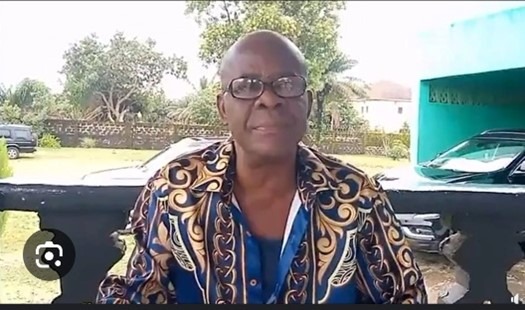President Joseph Nyuma Boakai faces the formidable challenge of steering Liberia towards economic prosperity. His extensive experience in public service, spanning over four decades, is seen by some, like Chief Cyril Allen, a member of the ruling Coalition for Democratic Change (CDC) Advisory Council, as a crucial asset in navigating the nation’s complex economic landscape. Allen contends that the President’s intimate knowledge of Liberia’s economic history, having witnessed both periods of growth and decline, positions him uniquely to implement effective policies for sustainable development. This sentiment echoes the views expressed by former Nimba County senatorial candidate Edith Gongloe-Wreh, who lauded President Boakai’s wealth of experience as a vital ingredient for national progress. The crux of the argument rests on the belief that Boakai’s long tenure in government should translate into tangible economic advancements for the Liberian people.
Chief Allen’s call to action centers around leveraging Liberia’s abundant natural resources. He argues that the nation’s wealth, including gold, diamonds, timber, and vast coastal waters, remains largely untapped, representing a missed opportunity for economic transformation. Allen advocates for strategic investments in resource processing infrastructure, such as diamond drilling machines, gold processing plants, sawmills, and plywood factories. This, he believes, will not only add value to Liberia’s exports but also generate much-needed employment opportunities. Furthermore, Allen emphasizes the importance of reviewing existing concession agreements to ensure that Liberia receives a fair share of the benefits derived from its natural resources, a critical step towards maximizing revenue generation for national development.
Recalling past successes in the agricultural and industrial sectors, Allen points to initiatives like the Lofa County and Bong County Agriculture Development Projects as examples of programs that once contributed significantly to employment and agricultural output. He also highlights the potential of Liberia’s fishing industry, urging investment in modern fishing boats and processing vessels to capitalize on the country’s extensive coastline. These historical references serve as a reminder of Liberia’s inherent potential for economic growth and self-sufficiency. Allen’s emphasis on revisiting and revitalizing these sectors underscores the need for a comprehensive approach to economic development that draws upon both past successes and present opportunities.
Drawing a parallel with the timber and plywood industry’s performance during the administration of former President Charles Taylor, where Allen himself served, the CDC advisor cites the success of a US$33 million plywood plant in Buchanan, Grand Bassa County, which exported products regionally and to Asian markets. He further recalls a time when Liberian cocoa and coffee were traded on the international market, illustrating the nation’s historical capacity for agricultural export and economic engagement on a global scale. These examples serve to underscore Allen’s argument that Liberia possesses the resources and the historical precedent for economic prosperity, provided the necessary leadership and policies are implemented.
Allen urges President Boakai to draw upon these past achievements and formulate policies that effectively harness Liberia’s natural resources. He believes that such a strategic approach will not only boost the economy but also generate revenue for critical infrastructure development and improve the overall quality of life for all Liberians. The call for a proactive and decisive approach to economic management reflects a growing expectation that President Boakai’s extensive experience should translate into tangible improvements in the lives of ordinary Liberians.
The pressure on President Boakai to deliver on his promise of economic progress is palpable. While his supporters point to his long career in public service as a testament to his experience and capability, critics argue that he has been slow to implement meaningful change. The challenge for President Boakai is to translate his experience into concrete action, effectively leveraging Liberia’s resources to achieve sustainable economic growth and improve the lives of its citizens. The nation awaits the implementation of policies that will unlock its economic potential and deliver on the promise of a brighter future.


